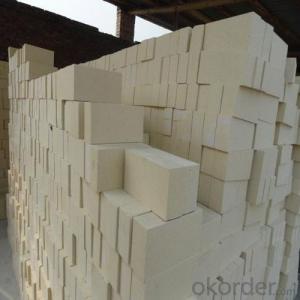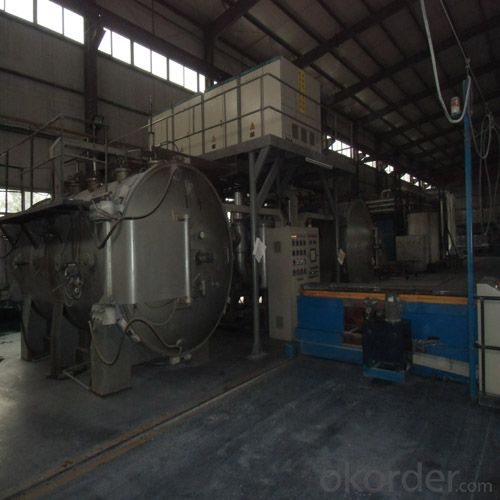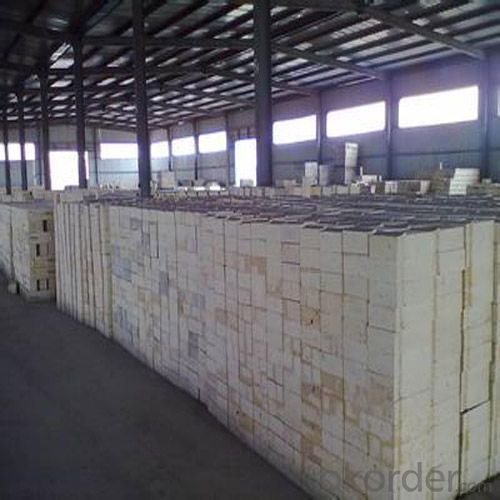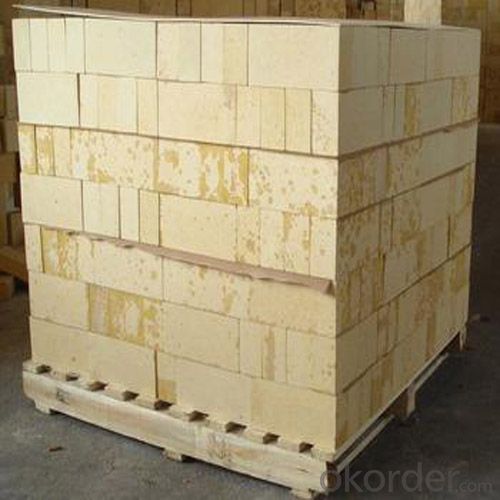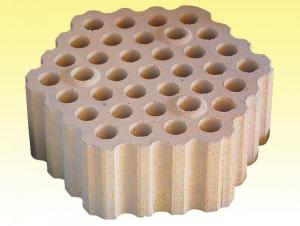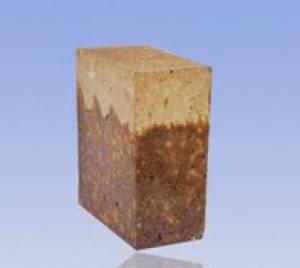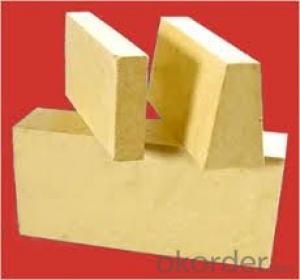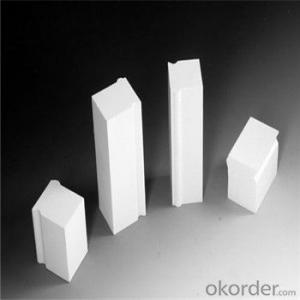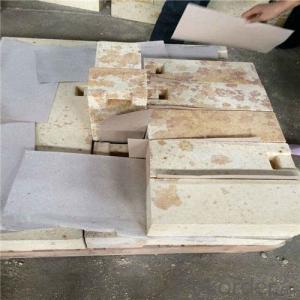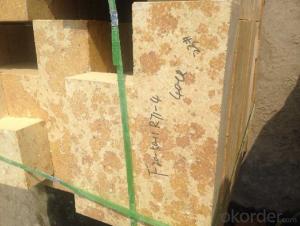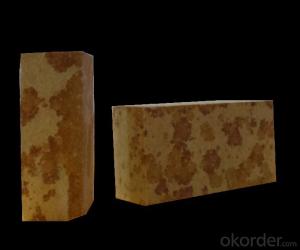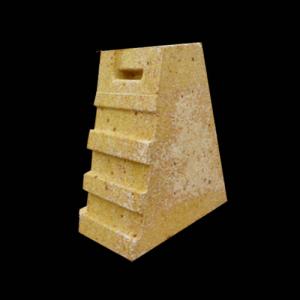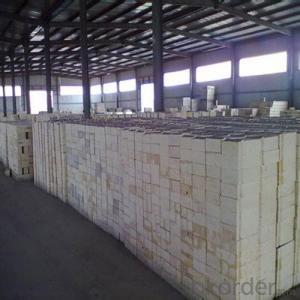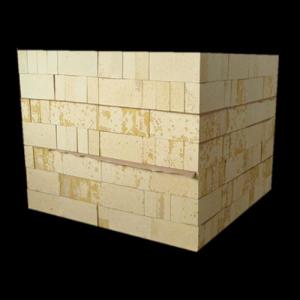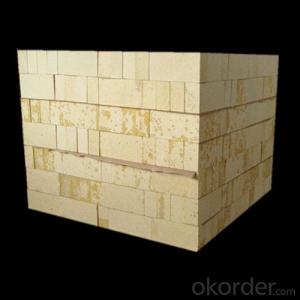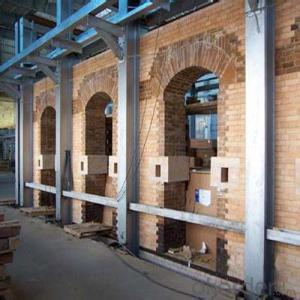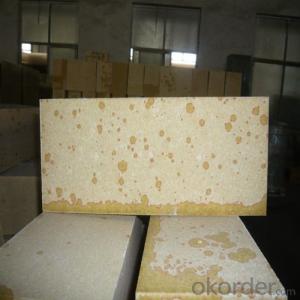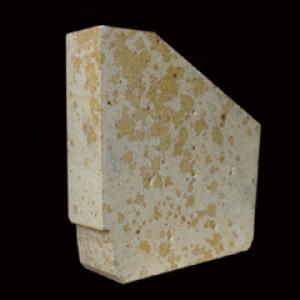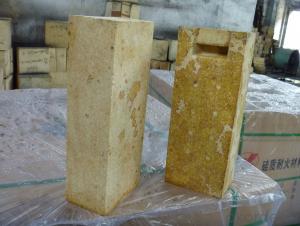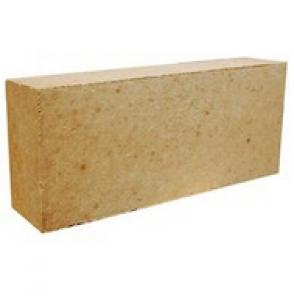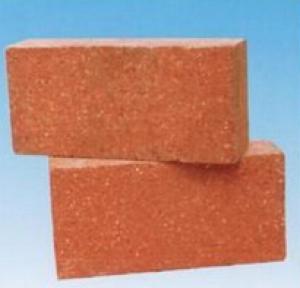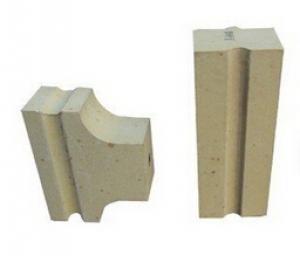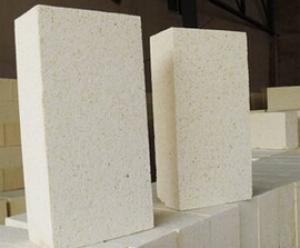Silica Brick G95 for Coke Oven
- Loading Port:
- China Main Port
- Payment Terms:
- TT OR LC
- Min Order Qty:
- -
- Supply Capability:
- 500000 pc/month
OKorder Service Pledge
OKorder Financial Service
You Might Also Like
Product Description:
General Information of Silica Brick For Coke Oven-G95
Our corporation produces a comprehensive range of silica bricks, with high silica content, all of these bricks exhibit excellent performance.
Our Silica bricks are the final result of blending excellent tridymite and cristobalite, as the main raw materials with cutting-edge technology, after mixing, drying, forming, in the high temperature shuttle kiln. There are also little quartz and vitreous within. We ensure you that the silica bricks made by us possess high quality standard and have gone through all the complicated quality control parameters. Their durability and strength adds life to the structure and they have the capacity of bearing high temperature.
Our competitive Advantage:
1.Competitive Price. Make the products competitive in your market.
2.Abundant Experience. Prevent cracks and twist in bricks.
3.Different Moulds. Save mould fees for you.
4.Lower ferric Oxide,porosity,higher refractoriness,density,higher CCS and exact tolerance.
5.Strict Quality Control. Meet clients’ quality requirement.
6.Safty packing,prompt delivery time,and excellent after-sales services.
7.Large stocks. Guarantee prompt delivery.
Silica Brick For Coke Oven---G95 | ||
Physical Properties: |
|
|
Permanent Linear Change(1450℃×2h)% | % | - |
Apparent Porosity, % | % | |
Cold Crushing Strength | Mpa | 29.4 |
Refractoriness Under Load (T0.6) | ℃ | ≥1660 |
Thermal Expansion | % | ≤1.3 |
Density | g/cm3 | - |
Chemical Analysis: |
|
|
SiO2 | % | ≥95 |
Fe2O3 | % | ≤1.2 |
Al2O3 | % | ≤0.8 |
Residual Quartz | % | - |
Note: | ||
- Q: Because of the recent relates to this industry, by way of learning to name for all raw materials, I hope knowledgeable friends exhibitions, thank you.
- Classification of chemical components of refractory materialsAccording to the chemical characteristics of refractory raw materials can be divided into acidic refractory materials, such as silica, zircon etc.; neutral refractory raw material, such as corundum, bauxite, mullite (acidic) (acidic), Ge (alkaline) iron and graphite; alkaline refractory materials, such as magnesite, dolomite, magnesium sand calcium sand.
- Q: Common bond brick?
- Manufacturing for silica brick binder hi-li sulfate pulp waste liquid and lime milk. When lime milk is used as a bond, it acts as a plasticizer. To increase the strength of lime brick in the drying process, as mineralizer in the firing, promote the transformation of quartz.
- Q: Why will expand when heated brick
- After high temperature after the formation of tridymite and cristobalite and quartz and a small amount of residual glass phase, quartz heating to 220-240 DEG C, in a certain degree of thermal expansion, brick maximum expansion occurs in 100~300 DEG C, 300 expansion before the total amount of expansion is about 70%~75%.
- Q: The introduction of silica brick
- Brick refers to the content of more than 93% products SiO2. Brick with SiO2 content of not less than 96% of silica as raw materials, adding mineralizer and binder, through mixing, molding, drying, sintering and other processes in the system. The higher the content of SiO2 in silica raw material, the higher the refractoriness of the product. According to the use of brick varieties, divided into: coke oven silica brick, brick for hot blast stove, electric stove with brick, brick for glass furnaces. According to the transformation is divided into: standard bricks, tiles, bricks and general special brick etc..
- Q: What is acid refractory?
- Acid refractory material usually refers to refractories with SiO2 content greater than 93%. Its main characteristic is that it can resist acid slag corrosion at high temperature, but it is easy to react with alkaline slag.
- Q: Such purpose and scope please give me detailed points thank you because I am learning stage
- Acid refractory brick is mainly composed of tridymite and cristobalite and quartz and a small amount of residual glass phase.
- Q: How much is the highest melting point of silicon?
- Acidic silica brick refractories, softening temperature is as high as 1640 to 1670 DEG C, in the long-term use volume is relatively stable under high temperature. More than 94% silica content.
- Q: Which material is good for furnace refractory?
- Acid refractory with silicon oxide as the main component, are commonly used in brick and clay brick. Silica is silica containing more than 94% silica products, raw materials used in silica, silica and other waste, the acid resistance of slag erosion ability, high load softening temperature, volume shrinkage after repeated burning, or even a slight expansion; but it is vulnerable to the erosion of basic slag, thermal shock resistance is poor. The brick is mainly used for thermal equipment of glass furnace, coke oven, acid furnace etc.. Clay brick with refractory clay as the main raw material, containing 30% to 46% of alumina, weak acid refractory material, heat shock resistance, resistance to acid slag, widely used.
- Q: The chemical composition of silica brick and its physicochemical index?
- The physicochemical index of silica brick:Turn left to |
- Q: The difference between clay refractory bricks and refractory brick in the application.
- Brick bearing soft temperature and close to the melting point, high temperature strength, can be in high temperature (above 1400 degrees) under the condition of long-term use, but the anti alkali erosion ability, thermal shock stability is the worst, a scrap. The brick is generally used in the coke oven, glass kiln. Other industries basically do not use.
Send your message to us
Silica Brick G95 for Coke Oven
- Loading Port:
- China Main Port
- Payment Terms:
- TT OR LC
- Min Order Qty:
- -
- Supply Capability:
- 500000 pc/month
OKorder Service Pledge
OKorder Financial Service
Similar products
Hot products
Hot Searches
Related keywords
